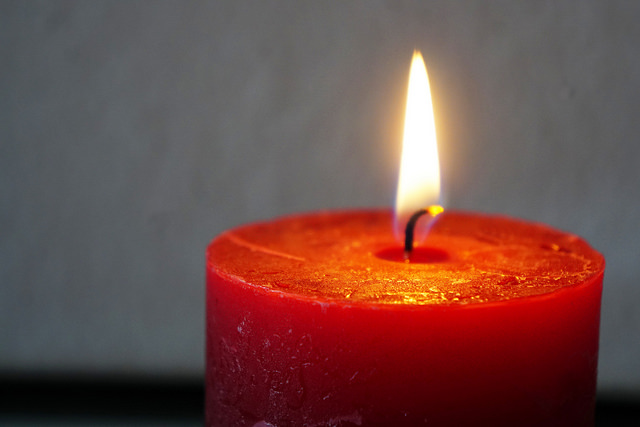
What is So Great About Being Grateful?
I hear a lot about being grateful, especially at this time of year. People talk and write about how important and powerful gratefulness can be in our lives.
We set aside a specific day to celebrate being grateful. Even that one day can become overwhelmed by parades and feasting, sports and shopping.
Some people try to focus their attention on being grateful despite all the distractions. They commit themselves to being grateful for 30 days through the month.
Being grateful can be a challenge for me. I think about, reflect on, and try to practice gratitude. It is not usually my first inclination, but something I need to do intentionally.
I have to admit, hearing about how beneficial gratefulness can be does not encourage me. I may be a little skeptical and need to explore for myself what gratitude can mean.
It seems to me gratefulness in many ways works a lot like forgiveness. I think it can be important and have real benefits, but do not want to be rushed into it. Whether I am grateful, like whether I forgive someone, is up to me.
I have quite a few questions about being grateful.
Do gratitude and thanksgiving depend on how we feel?
What if we are not feeling especially grateful on the day scheduled for Thanksgiving?
How significant is it for us to practice gratefulness when we do not feel like it?
What are the real, practical benefits of being grateful?
Do we think our way into being grateful or practice our way into understanding it?
Does Being Grateful Depend on How We Feel?
Part of the challenge of gratitude for me is about how being grateful relates to our feelings.
Do we need to feel grateful in order to be grateful? For example, I am grateful I have food to eat. My feelings, though, tend to be more shaped by people who do not have enough to eat.
My sense is feeling thankful is a warm, fuzzy sensation in which I feel satisfied or comfortable. I am hopeful we can be grateful even when we do not have that sensation.
Can we be thankful when we are not feeling satisfied or comfortable? Is it possible to be grateful when we see an injustice or situation which could be improved?
My experience of spiritual life is it draws us to contribute to making things better. Is that consistent with being grateful, or are they mutually exclusive?
The connection between gratitude and injustice is a complex one for me.
It can be challenging for us to be thankful for what we have received and still open to other people. That tension, that balance, is an essential part of spiritual life for me.
Practicing Gratefulness When We Do Not Feel Like It
Many things affect my feelings. It may be a problem with my computer, or my phone, or the car. How tired I am or how I feel physically change how I feel emotionally. My intuition may give me a sense about someone or a situation.
The way I practice gratitude is deeper than how I feel emotionally. A spiritual practice of gratitude is based on more than my attitude, my feeling of the moment.
When spiritual life draws us into a discipline or practice we make a commitment to change. We commit ourselves to develop a way of living and practice it each day.
Practicing gratefulness is a commitment to see things in a new way. We are not practicing to become more satisfied or comfortable.
Being grateful draws us toward being more willing to share what we have been given. It is a transition from being concerned about having enough to giving thanks.
We practice gratefulness not because of how we feel, but to transform the way we feel.
Practical Benefits of Being Grateful
As our practice takes root in us and changes us we become more grateful. Our disciplines help us open ourselves to the power of giving thanks.
We do not begin practicing with an intention to continue for a set period of time. Our hope is we will be transformed and become grateful.
In my own experience, spiritual life has drawn me into the ongoing work of becoming grateful. I still have a very strong sense of how life is not fair, where things could be better.
New ways of seeing have tempered my perceptions of what needs to be improved.
I am becoming more aware of gifts I have been given. Even people or situations I have experienced as challenging can become reasons to give thanks.
I do not see myself as a particularly patient person. My preference is usually to identify and make changes as early as possible. Spiritual life has shaped my reflection and insights to show me waiting may benefit us.
I am becoming less likely to struggle against limitations and thankful for waiting.
There may be a long list of benefits and rewards which flow from being grateful. It is easy to think of potential physical, emotional, and spiritual ways gratitude might help us.
Understanding and Practice
Some of us are motivated to sort out what we need to do before we begin. It can be helpful to try to see the steps and put together a plan.
No matter how much thinking we need to do, taking the first step is crucial.
If all we do is think, we will never begin to practice. There will probably always be something we do not completely understand.
At the same time, practice which will help us become grateful is based in understanding.
Whether we think our way into taking action or act our way into understanding, both help.
Being grateful is more than feeling satisfied with what we have. We are developing practical gratitude which draws us further into spiritual life.
As we see things in new ways we will work for change.
What is so great about being grateful?
How will we strengthen our practice of gratitude this week?
[Image by Rosmarie Voegtli]
Greg Richardson is a spiritual life mentor and leadership coach in Southern California. He is a recovering attorney and university professor, and a lay Oblate with New Camaldoli Hermitage near Big Sur, California. Greg’s website is StrategicMonk.com, and his email address is [email protected].












